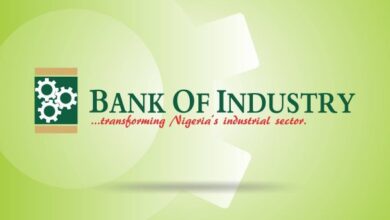FG Endorses Wholesale Investment Fund, commits 50% seed fund
 The Federal Government has endorsed and supported the establishment of the Nigerian Wholesale Impact Investment Fund (WIIF).
The Federal Government has endorsed and supported the establishment of the Nigerian Wholesale Impact Investment Fund (WIIF).
It also committed to providing 50 percent seed capital for its take-off.
The Minister of State, Finance, Budget, and National Planning, Prince Clem Agba, disclosed this at a high-level roundtable meeting in Abuja.
Agba said the WIIF would serve as an alternative instrument for the effective implementation of public welfare and social schemes.
He encouraged stakeholders to assess the challenges within their communities and consider how capital could be directed toward generating long-term, sustainable solutions.
“The WIIF was conceived by concerned stakeholders comprising the National Advisory Board for Impact Investing (NABII), Impact Investors’ Foundation (IIF), Ford Foundation, and Nigeria Competitiveness Project (a GIZ-funded programme)– who worked closely with the Federal Government to create a roadmap for its establishment.
“The fund was created to drive sustainable and impactful investment in the country by channeling financial resources into projects and enterprises that generate positive social and environmental outcomes, alongside financial returns,” he said.
Chairperson, NABII, Mrs Ibukun Awosika, lauded the efforts of government and stakeholders for their dedicated partnership, support and commitment to the project, which she said was instrumental to its success.
Awosika identified education and agriculture as priority sectors for impact investing and the empowerment of Nigerian youth and women.
“Collaboration between the public and private sectors was not a matter of choice but a necessity as Nigeria cannot solely fund the necessary changes and transformation required to improve the lives of its people.
“Impact investing has emerged as a significant tool for such partnerships, providing an avenue for making a difference,” she said.
The Nigeria Country Director, GIZ, Dr Markus Wagner, said the fund demonstrated the Nigerian government’s strong commitment to supporting small businesses’ access to finance, particularly within the agricultural, educational, and health sectors.
Wagner, however, stressed the importance of creating a sustainable financing mechanism to address the financing gap, which currently stood at approximately N13 trillion, as indicated by a recent International Finance Corporation report.
“I am grateful to the Honourable Minister of State for spearheading the initiative and championing impact investment.
“I also commend the NABII and the IIF for their continuous efforts in driving the promotion of the impact investment ecosystem in Nigeria,” he said.
Also, Representative of the EU Delegation to Nigeria and ECOWAS, Mr Alexandra Gomes, called on government to provide a supportive framework for initiatives like the Nigerian WIIF, as financing alone was insufficient to ensure their success.
The Director-General, the Debt Management Office, Ms Patience Oniha, expressed support for the governance structure put in place for the fund and encouraged active support from all stakeholders to ensure its success.
The News Agency of Nigeria (NAN) reports that the fund was also endorsed by the Central Bank of Nigeria represented by the Minister of Finance, Budget and National Planning, Dr Zainab Ahmed.












